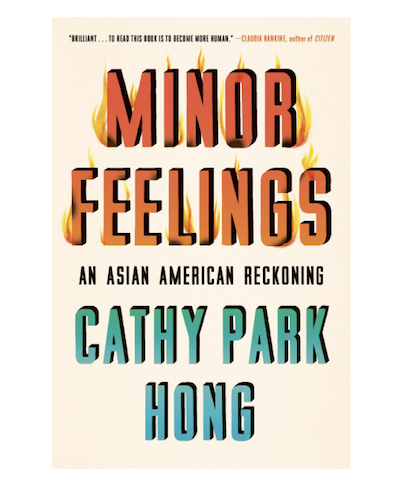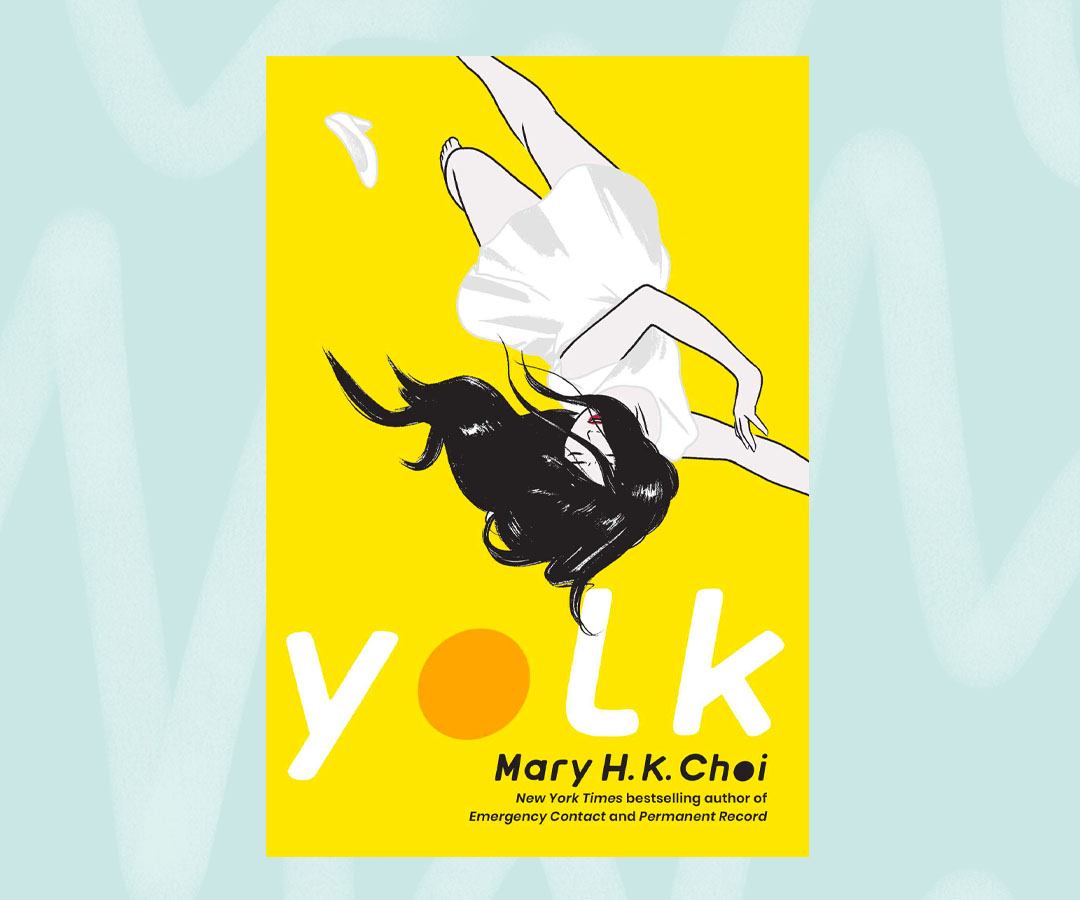Though Cathy Park Hong’s Minor Emotions: An Asian American Reckoning launched greater than two years in the past, the uncooked honesty, reality, and actuality of what it means to be Asian American lives with me. It confronts me typically and strides beside me after I least count on it. Rising up, I didn’t have many Asian associates. My perceptions have been, like most Individuals, restricted to martial arts films and occasional mean-girl facet characters.
Whereas I used to be so busy making an attempt to reconstruct my very own self to be much less Black and extra interesting to white society, it by no means even crossed my thoughts that different minorities have been doing the identical factor. In a rustic the place there’s a lot white-on-Black racism, discrimination, and general unfairness in each system, it’s simple to have tunnel imaginative and prescient. Each time I did meet different marginalized teams, particularly Asian ladies, I envied them. They at all times appeared so near white, so fortunate to be pale with straight hair and the smallness that I felt replicated femininity at the moment. It by no means occurred to me that we may sit in the identical boat, not to mention that we actually weren’t sitting up to now aside.
Studying Minor Emotions awoke one thing in me. Though Hong’s notion is proscribed to her personal life experiences, figuring out there’s a marginalized, non-Black individual on the market who felt like me made my emotions all of the extra actual; it was liberating within the least anticipated means potential. The teachings I discovered from studying her work have been past transformative, so I hope they show to be simply as profound for you.
1. Having a Therapist Who Doesn’t Look Like You Isn’t The Finish of the World, However It Would possibly Be Life Altering
To start with within the anthology, Hong pursues a therapist. The common thought of pursuing remedy remains to be criticized and uncomfortable for a lot of minority teams, however the thought of discovering somebody identical to her appeared to make the danger really feel a bit safer. After a really hefty session with the one Korean American therapist that took her insurance coverage, Hong was shocked the therapist may not see her. She known as every day, generally a number of occasions a day, begging franticly for some kind of response or reply, however she solely acquired a chilly name telling her they weren’t a very good match.
Though a therapist ought to cope with this example quite a bit smoother, Hong’s intention of speaking with somebody who “simply knew the place she was coming from” backfired in a means most wouldn’t count on. As a result of the therapist regarded like her, Hong thought there was a jeong, or deep instantaneous connection, based mostly on the only function of them each being Korean. After speaking with a good friend, she realized she was simply in search of “a shortcut to herself” and that pursuing a therapist from a distinct cultural background proceeded to be a therapeutic session for her personal traumas and the sentiments of abandonment from her earlier therapist.
The general level of remedy is to dissect and breakdown childhood traumas so as to make these behaviors obvious within the current to allow them to be tackled head-on. The concept all the pieces dysfunctional about our world is reliant solely on our tradition is all of the extra purpose to not have to clarify your life. It confirmed me that remedy itself is the primary problem and that we shouldn’t lean on therapists to “simply get it.”
2. Our Mother and father Maintain Comparable Burdens—One Day, We Can All Put Them Down
Hong introduces her father as a “mannequin immigrant” who has lived many lives all through his trek from South Korea to the U.S. From being filth poor to a false mechanic and finally to a life insurance coverage vendor, Hong notes that by means of all of it, his anger is what she acknowledged probably the most. His hyperawareness of race turned a projection he always shined on his kids, with feedback like “at all times smile and say hi there” or “there are various Caucasians right here.” This manifested into Hong’s hyperawareness of herself and her general perspective of all Asians in America.
As a result of her father had lived so many lives on the sting of being poor or damaged, his worry of merely not having the ability to survive was embedded into his kids; he wished them to have entry to “The American Dream” however was so caught up in being nothing just like the the media’s interpretation of Asian Individuals. This changed into the will to be the one Asian American within the room or ruminating on encounters in nail salons for Hong. This damaged thought of the way in which she perceived herself and others like her jogs my memory of the way in which I seen myself for thus lengthy.
At round age 16, I observed I’d stroll all through shops with my arms open and in entrance of me; subconsciously, I satisfied myself I may simply be a thief as a result of the remainder of the world noticed me that means. I’d say issues like, “there are too many Black individuals in right here,” not realizing that I’d by no means say the identical factor about different racial teams. There have been occasions the place I’d even discover myself having nervousness assaults round individuals who regarded like me; the world had taught me to worry myself.
Coming to phrases with the internalized racism I used to be coping with was a tough journey as a result of, like Hong, it had infiltrated each a part of my life. My hair was too curly. My physique was too curvy (or not curvy sufficient for a Black woman). Every part was an excessive amount of or too little however by no means ok, in keeping with the remainder of the world. The shortage of psychological well being consciousness in my group solely made my emotions of vulnerability worse. Unintentionally, my mom had taught me to attenuate myself for the sake of survival, when in actuality, I used to be falling aside for that exact same purpose. The burdens our mother and father maintain have totally different meanings now, and breaking the locks of generational trauma is the one technique to give the facility again to ourselves. For myself, I’ve discovered to relaxation and provides grace means earlier than it’s wanted. I’ve discovered to query the normalcies I grew up with, and I always let myself evolve in methods my mother and father by no means had the possibility to. Though it might appear small, this act of service to myself is what jogs my memory that the disgrace I grew accustomed to shouldn’t be me. The stereotypes, reactions, and views I obtain from different individuals are not me both: It’s merely a product of their very own ignorance.
3. Know Your Viewers and You’ll Ultimately Know Your self, Too
Hong writes about her enthrallment with Richard Pryor, a late 1900s comic and actor. She tells the story of her first time watching his stand-up reveals and the way his means with jokes by some means “rid the punchline to show that stand-up may very well be something.” The hardness and blunt drive of his jokes weren’t like different comedians; they have been sobering and uncooked, crammed along with his personal life experiences showcased for the world to see. At some point, after watching Pryor enter a brand new stage of his comedic lifespan, she discovered herself delivering the identical revelation: “What the fuck am I doing right here? Who am I writing for?”
As a author, I’ve discovered myself at all times questioning what “house” would really feel like. After all, you’ll be able to excellent (or get as near excellent as humanly potential) your means with phrases or know grammar higher than anybody in your good friend group, however what does any of it imply for those who’re not writing your reality? A lot of my very own understanding of what a author’s house or group regarded like got here from inaccurate portrayals in media. On high of the inaccuracy, not seeing myself within the house made me desperately wish to be there much more. Digesting Intercourse and The Metropolis or The Satan Wears Prada was only a reminder that I used to be invisible in these areas. It haunted me for years. I gaslit my talents, talked myself out of writing alternatives, and compelled imposter syndrome onto myself. That’s when these minor emotions, or “ugly emotions,” arose in me: the invalidation, the undermining, and the idea that any sense of “different” was simply in my head.
After I requested myself who I used to be writing for, I noticed the sunshine on the finish of the tunnel. I started to understand, as Hong places it, “the slowness” of writing. I used to be conscious that as a author, I craved an viewers however looked for my group inside all of it. I made a decision I used to be not writing for the white gaze however for myself and for many who regarded like me. My ardour and perseverance burned like by no means earlier than. I discovered my house. And though the highway of being a author is full of bumps, twists, and turns, it’s always about recreating and being true to your self alongside the way in which.


Supply: The Every Girl
